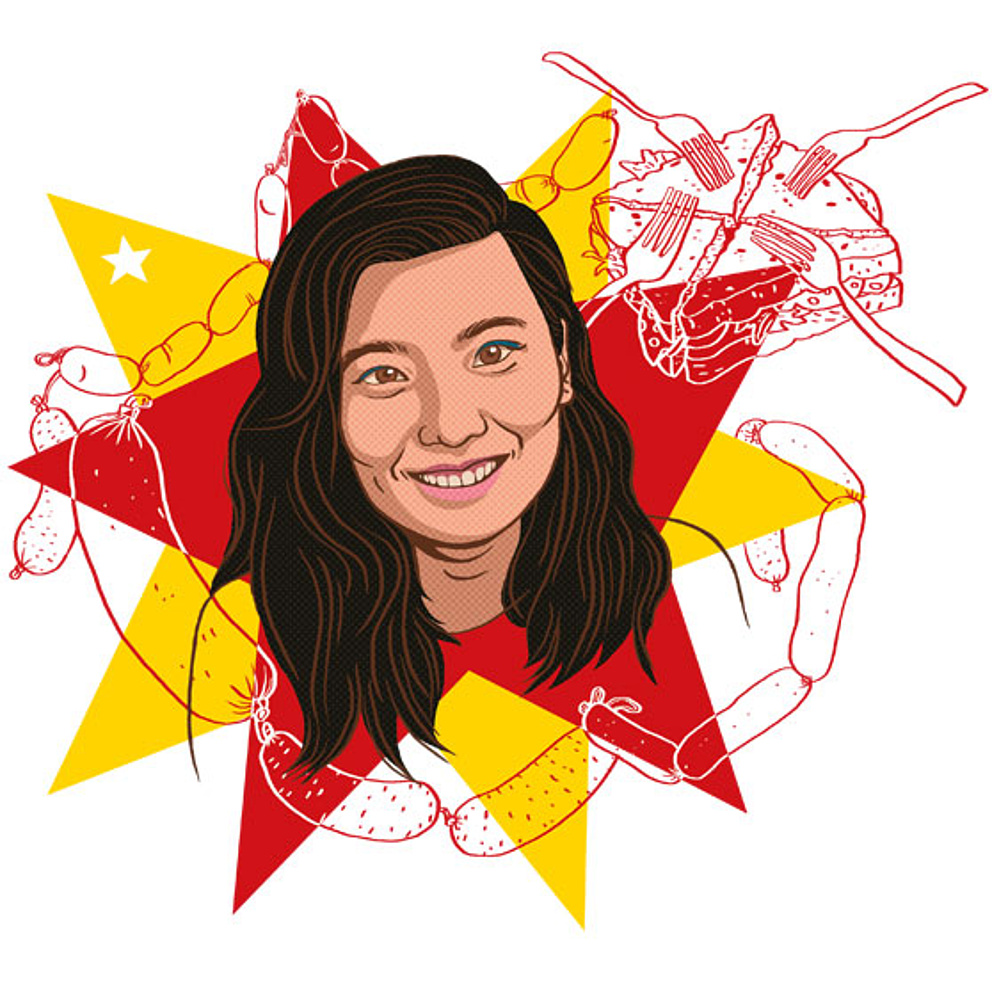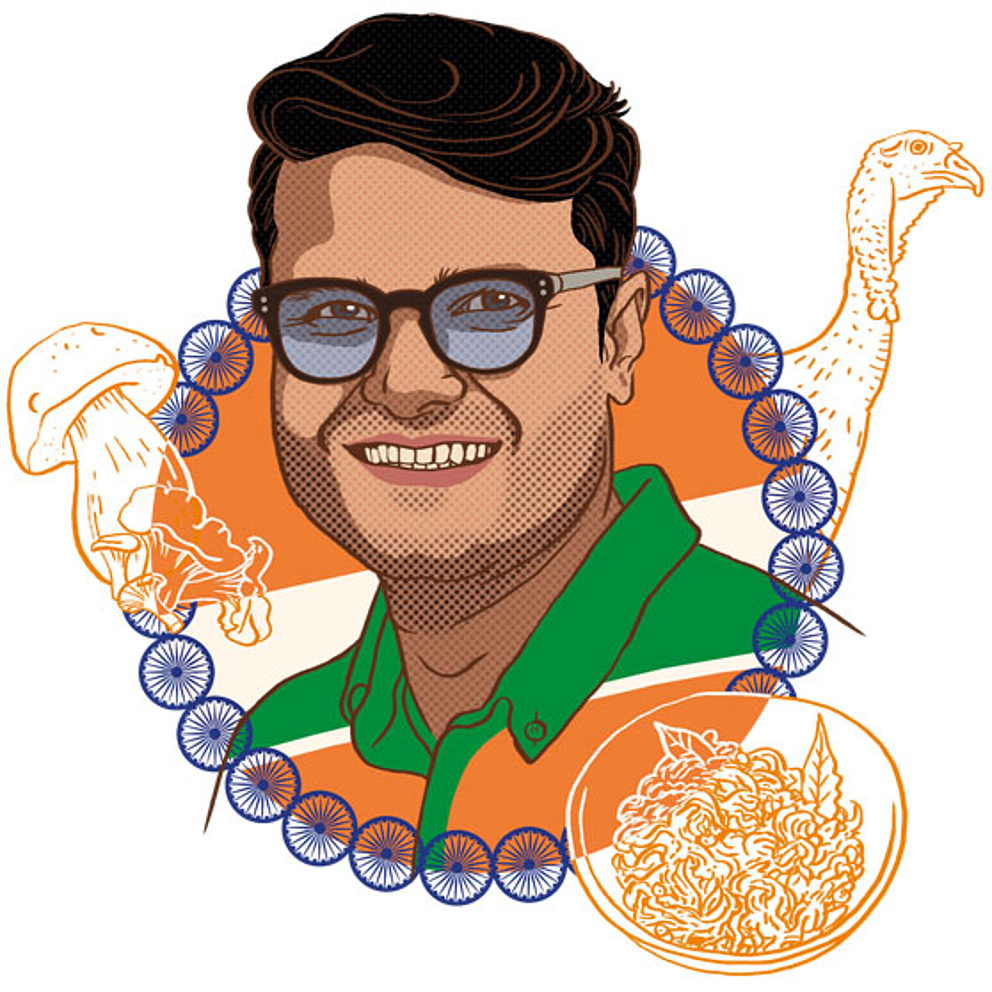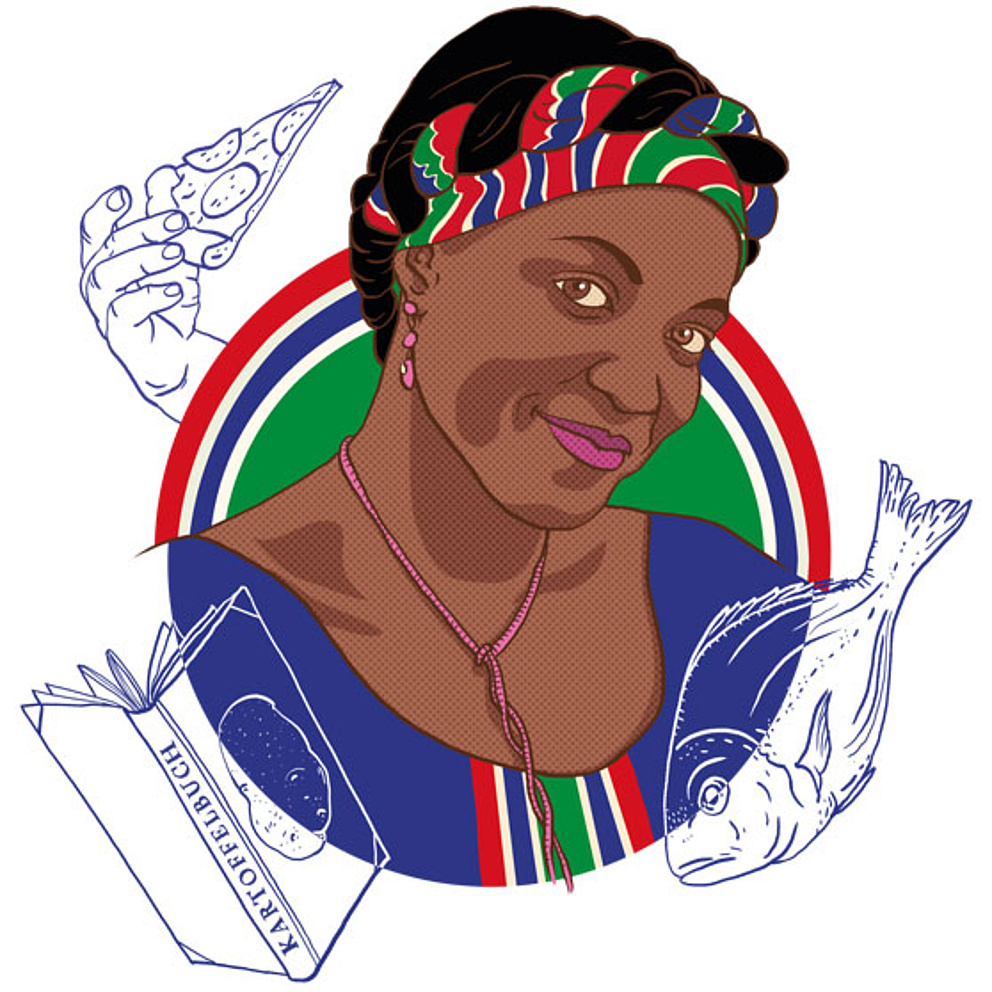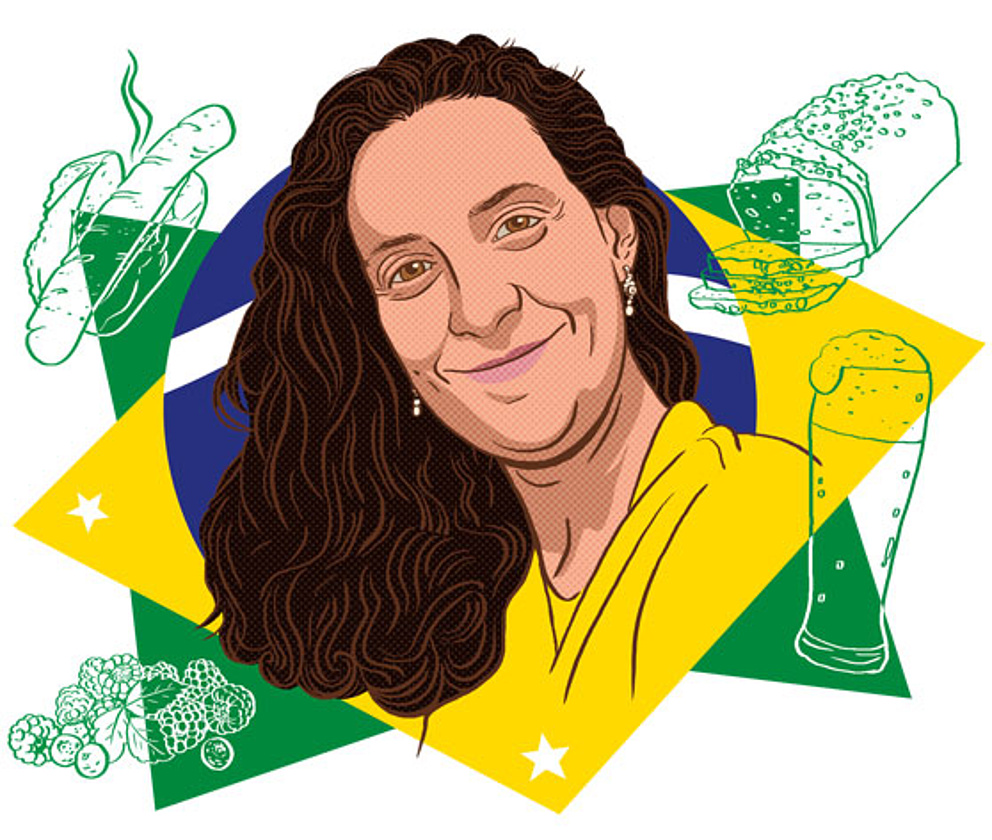Jump to the content
- {{#headlines}}
- {{title}} {{/headlines}}
Why such small portions?
Cheng Yu, China

It’s lunchtime. Four young business people are sitting at a table sharing a sandwich. I’ve never seen anything like it in Hong Kong, where I come from, but in Berlin it’s quite usual. Why do Germans eat such miniscule portions at lunchtime? Don’t they know anything about enjoyment? Are they afraid of a post-prandial slump? I know it well: it kicks in after a big meal about 3 o’clock in the afternoon and makes you very sleepy. That never happens to me in Berlin. At best, I just look longingly at all the restaurants with cuisine from every conceivable country, or at my favourite chiller cabinet in the supermarket. There you can find the world’s best sausages. Lots of young Germans couldn’t care less – they’re vegans and don’t eat any animal products at all. But how can you make stuffed dumplings without eggs? I tried to make some recently and must say they weren’t what I’d call typically Chinese.
Mushroom-hunting
Jay Patankar, India

Chanterelles, porcinis, bay boletes – Erlangen is turning me into a mushroom gourmet. At home in India I wouldn’t touch stuff growing in the wild, but in restaurants here I love choosing mushroom dishes. My wife has even bought a guide to identifying mushrooms and our two children are looking forward to mushroom-hunting in autumn. I’m also amused to note that my prejudices about German food are gradually dissolving. I had expected sauerkraut, potatoes and pork in Germany and the prospect made me shudder. But now I can hardly get enough of all the good things like wholegrain bread, turkey and wheat beer. I’ve even found a liking for sauerkraut, especially when it’s served with juniper berries. Followed, please, by one of those only slightly sweetened desserts like Bavarian cream, rhubarb cake or apple strudel. Indian desserts? I now find them much too sweet.
Unbeatable prices
Adam Ceesay, The Gambia

It’s incredible what you can do with potatoes! From home, I knew chips and mash but it was only in Bremen that I encountered potato cakes, croquettes, gratin, and potato salad and soup. My German neighbour recently gave me a potato cook book and I’ve already tried out some of the recipes. I cook nearly every day, usually a rice dish with fish, which is typical in Gambia. I can buy all the ingredients in my own part of town – at amazingly low prices: in Gambia, I’d easily have to pay five times as much. What I really love is the fantastic choice at German cheese counters. But I am genuinely surprised about table manners: lots of people eat pizza with their hands, for example, even on official occasions. Where I come from we always use a knife and fork.
What on earth is “spongel”?
John Henry Lehman, USA

Both my parents have German roots. I’ve always known fried potatoes, sausages and apple cake – and I love them. But what on earth is “Spongel”? It was the middle of spring and I had just arrived in Berlin. Every day, this peculiar word was chalked up on the menu of my favourite Italian restaurant. In broken German, I asked what it meant and looked it up in the dictionary – in vain. Eventually, I ordered a portion and discovered it was asparagus, “Spargel”. After that, I frequently ordered it, preferably with melted butter, and followed by a strawberry dessert. At lunchtime, I liked to go to the canteen of the PTB, the National Metrology Institute of Germany, where I was developing a light detector for climate research. Of course, it wasn’t a Michelin restaurant, and you should definitely give the junket a miss, but the cooks really did their best, and I thought it was great to have a canteen in the first place. American research institutes hardly ever have their own.
Bread, berries, beer
Simone Nunes Brandão, Brazil

Sitting outside with friends, a glass of wheat beer in front of me, munching a roll stuffed with a bratwurst – that’s how good summer in Germany can be. People are happier than at other times, friendlier and more relaxed. You can believe me; after all, I spent ten years in Germany. I’ve now been back in Brazil for the last four years. What epicurean delights do I miss? Above all, the delicious wholemeal bread, raspberries, blueberries, apple spritzer, all the great types of beer, and being able to buy organic products on every corner. Sadly, Germans throw away a lot of food the minute it isn’t so fresh. They can afford to do so because food is relatively cheap. I now have to pay considerably more for my beloved Swiss chocolate. But once a month, it’s a must.
